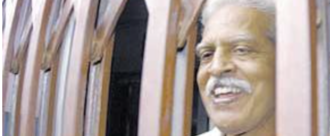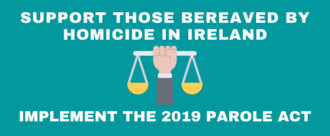- Featured
- Animal Rights
- Anti-racism
- Arts & Culture
- Children
- Climate
- Corporate accountability
- Crime
- Disability rights
- Economic
- Education
- Environment
- Food and Sustainable Production
- Gender Equality
- Governance and Transparency
- Health
- Housing
- LGBT Rights
- Mental health
- Northern Ireland
- Planning
- Privacy and Data Protection
- Rural Inequality
- Social Justice
- Trade
- Transport and Infrastructure
- Workers' Rights
- More
-
Grant non-susi students the option to receive €250 as a single paymentGives each student equal opportunity and the liberty to make their own decision as opposed to receiving the institution credit note or opting for a reduction of fees10 of 100 SignaturesCreated by Annie Morenigbade
-
Plea for Imprisoned PoetThe Indian poet Varavara Rao was arrested and jailed in the aftermath of a violent protest at Bhima Koregan on 1 January 2018. Alongside ten other defendants, Varavara Rao denies all the charges raised against him. The elderly poet contracted COVID-19 while in prison and has been over two years in jail under appalling conditions without trial.83 of 100 SignaturesCreated by Conor Kostick
-
Fix Ireland's Climate Bill 2020! #FixTheBillIn 2020, Climate Case Ireland took the Government to the Supreme Court for failing to act on climate change - and won. However, the fight for climate justice isn’t over. Ireland’s Climate Bill 2020 threatens to undermine the impact of the Supreme Court’s landmark judgment in Climate Case Ireland and creates a legal framework so weak as to be incapable of enabling the urgent action needed. The Climate Bill must be revised to protect the historic Supreme Court judgment and ensure that Ireland finally adopts legislation which has climate justice, a just transition, and a clear commitment to remaining below +1.5°C as its central organizing principles. Sign your name to let the Government know they must fix Ireland’s Climate Bill! #FixThe Bill 1. Learn from Climate Case Ireland: Climate Case Ireland successfully challenged the Government’s 2017 National Mitigation Plan on the basis that the Government had failed to specify how it would achieve the objective of the original 2015 Climate Act within section 4(2)(a). The re-drafted 2020 Climate Bill makes changes to reduce accountability such as: a. Removing and replacing section 4(2)(a) of the Act. To preserve the effect of the Supreme Court's judgment, section 4(7), as inserted by the Bill, should be deleted or amended to be "without prejudice" to section 4(6); b. Requiring the government only to “pursue” the 2050 goal rather than “pursue and achieve”; the latter was the phrase used in the 2015 Act and in the previous Government’s 2019 Heads of Bill; c. Use of weak, permissive language to reduce legal accountability, such as “have regard to” and “in the opinion of the Government/Minister”; d. The Bill no longer refers to achieving an “environmentally sustainable economy”. This should be reinstated. 2. A 2030 Target: The National Climate Objective should reflect an explicit commitment to complete decarbonisation (not “net-zero”)* by 2030 at the very latest and an equitable and scientifically sound commitment to remaining below +1.5C (*zero energy emissions combined with nature-based solutions that enhance biodiversity to sequester carbon from sectors where some emissions remain inevitable). The Bill should include a ratchet mechanism empowering the Minister to bring forward the decarbonisation year and interim targets, which are needed in the Bill. 3. Climate Justice and Just Transition: Decarbonising Ireland’s economy in a decade will not be easy. The principles of climate justice and just transition should be defined and should include the principle of a progressive distribution of the financial burden of climate mitigation and adaptation measures. These must be the central organizing principles of the Bill, with clear accountability mechanisms. 4. Reliance on undeveloped and untested technologies: The Bill should aim for complete decarbonisation by 2030, rather than a ‘climate neutral economy’ – the Bill currently implies large-scale use of unproven CO2 “removal” technologies. 5. Interim targets: The Bill’s carbon budgets should be pegged to interim targets that will put Ireland on a pathway to a decarbonisation target year of 2030. 6. 7% not enough: The Programme for Government commitment to reduce emissions by 7% a year on average over the next decade is not enough to make a fair share contribution to keeping global temperature rise below +1.5°C. 7. Strengthen language: The requirement to ‘have regard to’ should be strengthened to ‘consistent with’ in relation to: a. The objective of the UNFCCC and the temperature limits specified in the Paris Agreement b. Fulfilling the principles of climate justice and just transition; c. Fulfilling the objectives of the National Biodiversity Action Plan and the Aarhus Convention. 8. Legal accountability needs to be built in throughout the Bill: Carbon budgets should be legally binding, and all activities undertaken by public bodies, Government departments and private industry should be consistent with the carbon budgets. Failure to remain within the carbon budget limit should be met with clear sanctions. 9. Obligations on public bodies: all public bodies should be required to carry out their duties in a manner ‘consistent with’ the temperature limits and principles of the Paris Agreement. 10. Reparations: Financing emissions reductions efforts overseas alongside the provision of technological support should be viewed as reparations for harms done due to climate change under the Loss and Damage mechanism. 11. Include emissions from international aviation and shipping. 12. Impact assessment and reporting: All plans, projects and programmes should be assessed for their full climate impacts including non-territorial emissions. The EPA should be tasked with monitoring and reporting on “consumption emissions” in addition to territorial emissions. 13. Fossil fuel infrastructure and fracked gas: The construction of new fossil fuel infrastructure and the re-permitting of existing infrastructure should be prohibited by the Bill, including for example liquefied natural gas (LNG) terminals and gas-fired power plants and storage facilities. We also call for the insertion into the Bill of a section amending the Petroleum and Other Minerals Development Act 1960 to prohibit the importation or sale of fracked gas. 14. Actively disseminate information on the functions of public bodies under the Bill & guarantee public participation. 15. Provisions relating to the Climate Change Advisory Council should be amended to: a. Replace voting ex-officio members with independent experts in industrial relations, law and social justice b. Ensure the Council is adequately resourced, gender balanced, and inclusive of directly affected interests (eg youth and migrants from worst impacted nations), c. Be tasked with regular reporting on whether current policies and plans represent “progression” and Ireland’s “highest possible ambition” (Paris Agreement).2,168 of 3,000 SignaturesCreated by Climate Case Ireland

-
Support for Mental Health in Irish SchoolsAccessible therapeutic counselling for children is a proven cost-effective early intervention with the ability to alleviate distress for young people as well as pressure on already overwhelmed mental health services and on overstretched school staff. An on-call counselling support service with onward referral could provide students with an in-school option for seeking help, support and an extra entry point to accessing mental health services, often in a time of crisis. From the IACP. "On 18th May, 2019 the IACP outlined a proposal for the expansion of existing mental health supports to secondary schools, via the introduction of a State funded, counselling support service for children. Although these types of supports are available in many other countries, and are proven to be a cost effective, easily accessible early intervention, there is no such established support system in Ireland. Consider the current pandemic, the IACP is now proposing that these counselling supports be extended to primary school children. Prior to the current crisis a national survey – commissioned by the IACP and carried out by Behaviour & Attitudes (March 2019) found that there is very strong support amongst Irish adults for therapeutic counselling to be made available in all Irish schools – with 9 in 10 saying that they’d like to see this."781 of 800 SignaturesCreated by Alison Murphy

-
Stop handing over public money to the greyhound racing industryThe greyhound racing industry received an increase in €2.4 million last year. This is an industry which has received €280 million in government funding since 2000. A shocking documentary has revealed that nearly 6,000 Irish greyhounds are killed each year just for not racing fast enough and endure horrific cruelty. Ireland is one of only eight countries in the world that still allows greyhound racing.8,864 of 9,000 Signatures
-
Stop Unsustainable Fishing in Irish Inshore WatersIn 2018 the Irish government implemented a ban on trawlers greater than 18m to fish within 6 nautical miles of the Irish coast. The High Court has since overturned this ban with the current law now allowing boats of any size to fish anywhere with no regulations or quotas enforced. Not only is this detrimental to inshore ecosystems, smaller Irish fishing communities cannot compete with large unregulated trawlers coming inshore. Bantry Bay in West Cork is one particular area that is currently at the detriment of unsustainable fishing practices. Although Bantry Bay is a designated Special Area of Conservation (SAC), drone footage of pair trawling was captured here in October 2020. This area is home to marine invertebrates, fishes, elasmobranchs, seabirds and marine mammals. While pair trawlers are fishing legally, with no regulations or quotas, they are fishing at an unsustainable rate and removing a critical food source (sprat and herring) for many larger marine species. Additionally, 80% of Irish fishing vessels are less than 12m and cannot compete with large trawlers. We need the Irish government to support small Irish fishing communities and protect our marine environment and its inhabitants. The Minister of Agriculture, Food and Marine , Charlie McConalogue has recently lodged an appeal against the High Court’s decision to allow large trawlers to fish within 6 nautical miles of the Irish coast. We call on the High Court to reinstate this ban on trawlers greater than 18m to fish within 6 nautical miles of the Irish coast.204 of 300 SignaturesCreated by ORCA Ireland Ocean Research & Conservation Association

-
Free period products in NI schools #MenstruationMattersUnlike England, Scotland and Wales, NI still does not have a budget or scheme in place for free period products in all school toilets. Yet again, we have been left behind. Schools already provide free toilet roll, hand soap, hand towels and sanitary waste disposal bins in toilets. What makes period products any different? We firmly believe that any toilet that requires toilet roll, requires period products in exactly the same way. In June 2020, a Plan international UK study showed how 3 in 10 UK girls have struggled to afford or access sanitary wear during lockdown, with over half (54%) of these girls having used toilet paper as an alternative. There is no doubt that period poverty has been exacerbated as a result of the current pandemic and the need to maintain good hygiene has never been more important. Due to extensive job losses, an increase in people using food banks, and many other local support services being cut, families have been hard hit and are under more financial pressure than ever. At the Homeless Period Belfast, we have seen an exponential increase in demand and requests for our own period packs. In April – June 2020 we received 3 times the demand than previous years. Now, more than ever, a free period products scheme in schools across NI will relieve the financial pressure on parents and students purchasing these items. It will also alleviate the pressure of school students having to remember to carry period products in their bags when there are many other things to worry about and remember to bring (exams, books, homework, hand sanitiser/masks, bus passes etc.), meaning students can go about their daily lives without getting caught out. Free period products in schools will ensure that every young person can learn and be their very best, without the worry of their next pad or tampon holding them back.5,334 of 6,000 SignaturesCreated by The Homeless Period
-
Preserve and Restore Lovers Lane Ródán, CarndonaghAt a time where 'connection' has become so important as we have all reflected on the effects of this pandemic on our families and communities, we must stand to oppose the wilful damage to our local folk-history heritage sites and preserve these for the future. The restoration, preservation and reopening of the 'Ródán' known as 'Lovers Lane' should not be a political matter...it is a necessary action to protect the living history and shared heritage for our community. 'Lovers Lane' is recorded as a public right of way on OS maps dating to the 1800's and is likely to be much older than this. There is a strong local folklore history connected to this site which is currently in the process of being ripped out by bulldozers by a local construction firm in the name of development. The planning documents show no permissions to interfere, damage or indeed close this public right of way...no public notification has been made to announce the closure of this public pathway which is heavily used by walkers, who now, due to the illegal closure and damage to the pathway, have to walk across a newly opened construction site entrance (which there is no planning permission for) along a busy narrow road and onto a major artery road, putting the public in harms way. We, the undersigned community of Carndonagh insist on the cessation of damage, the restoration to it's original state for preservation and the immediate reopening of the Ródán 'Lovers Lane' in Carndonagh, Co. Donegal.671 of 800 SignaturesCreated by Sinead Smyth
-
No Rent Hikes on Sligo County CouncilThe current pandemic has seen many people have their incomes severely affected or lost their jobs. More strain should not be put on struggling families by increasing council rents. While we understand council revenues are down due to the pandemic, local tenants should not have to pick up the tab for a lack of funds from central government.10 of 100 SignaturesCreated by Nigel Gallagher
-
Birr Primary Care CentrePrimary Care Centre for Birr This week the HSE turned down the Rectory Field as a location for the proposed Birr Primary Care Centre. For years the HSE have been informing the people of Birr that they are committed to providing a Primary Care Centre in the town and to date nothing has happened. This weeks news has set us back to square one. Tullamore has a Primary care centre, the Primary Care Centre in Banagher is near completion so why is Birr no further on?? We need to show the HSE that the people of Birr and surrounding areas need a Primary care centre and we want the HSE to make this a priority. The HSE have given an assurance that space will be provided for the possible return of our “Out of Hours (MIDOC) “ when the Birr Primary Care Centre is built. The longer the delay the longer the wait to get our MIDOC back to BIRR. We are also asking for an “X-RAY Diagnostic Hub” in the new PCC. It is amazing how many cars travel to Tullamore by day and night for this service. We are fed up of travelling and fed up of waiting weeks to see a doctor. We urge the Minister for Health and the HSE to take immediate action on developing a primary care centre for Birr without further delay.385 of 400 SignaturesCreated by Cllr Clare Claffey

-
Implement the 2019 Parole ActAny prisoners serving a sentence longer than 8 years are allowed to apply for parole halfway through that sentence. Being approved for parole would grant them early release from prison. Someone sentenced to life in prison can apply after 7 years. The parole board is an administrative collection of members who advise the minister for Justice and Equality on the applications from long term prisoners. The members include senior officials from the department of justice and equality, the head of the probation service, the medical director of the central mental hospital and various community representatives. At the moment the applicant must go before a parole board who will assess their progress and examine how they have engaged in reformative work while in prison and a number of other factors including; * Whether it is reasonable to grant early release based on the nature of the offence * Whether they want release * Whether there are any compassionate grounds that would grant special consideration * Whether they have engaged with therapeutic services within prison to combat their offending behaviour * And whether their release would be considered a threat to the safety of the community Their recommendation is passed to the serving minister for justice and equality who must then either accept, deny or accept it in part. When a prisoner is not recommended for release, they will have their case reviewed every one and a half to three years. This means that the families of victims must prepare themselves to write a statement each time between the seven-year mark and when the perpetrator is eventually released on license. This is a traumatising task for those bereaved by homicide or victims of crime. A piece of legislation that would increase the minimum term served before convicted killers could apply for parole to 12 years was first proposed to the government in 2016. It was enacted in July 2019 and would mean that the parole board would become an independent body outside of the government becoming more transparent and accessible for victims. The new parole board would be made up of people who are appointed by the Minister for Justice who would have an understanding of the prison system, the law and the impact on victims. This would remove politics from the parole process. The Parole Act was passed in 2019 and a year later it has still not been implemented. Convicted murders have been eligible for parole during this time, the Act would have been retrospective and ensured they had to serve a minimum of 12 years so the Department of Justice has let down victims and their families with the delay. Sinead O'Leary was the victim of a random, vicious knife attack which left her fighting for her life, and ended the life of her best friend Nichola Sweeney. Her attacker, Nichola's murderer, Peter Whelan, has been up before the Parole board numerous times, he has also been granted day release and neutral venue visits in the area where he committed the horrific assault. The Parole process has left Sinead feeling re-traumatised and disposable, and it has devastated Nichola Sweeney's family. . Here is Sinead's account; "The process has been soul destroying, painful and confronting. Peter Whelan deemed my life to be without worth, he deemed Nichola’s life to be without worth and he continues to do so. Allowing this monstrous individual to have access to the Parole Board 7 years before he was due to even begin serving his sentence for her murder devalues Nichola’s life. Recommending and permitting temporary day releases after serving a mere four years, not even the minimum seven-year term of this sentence, devalues Nichola’s life and Nicholas families trauma.. Reducing the sentence of attempted murder by four years devalues my trauma. Whelan may display ‘good behaviour’ in prison but Whelan has done this before. He reportedly was a ‘model client’ during a 4-month stay in a substance abuse treatment centre which his parents enrolled him days after he assaulted the girls on New Year’s Eve, yet two weeks later he launched his frenzied attack on Nichola and I. To be blunt, prison is not the real world. It is simply controlled compliance. Compliance should not be rewarded, it should be expected. What happens to someone as disordered as Whelan when all the strict controls of prison are replaced with the myriad of choices, stresses, and temptations of the real world? I was 19 years of age when Peter Whelan tried to kill me. I was at the beginning of my adult life, no longer a child, with a world of possibilities ahead of me. Instead, I entered adulthood in a world of pain and trauma. I spent my 20th birthday recovering in a hospital bed reeling from the reality that my best friend had been murdered. While the man who tried to kill me slept soundly in his cell despite the horror he inflicted upon Nichola and I. I have spent subsequent birthdays mourning the life of my best friend and the life that was taken from me. For I am serving my own life sentence because of the actions of Peter Whelan. In 2019, I was told that not only had Whelan had three meetings with the Parole Board, in 2010, 2014 and 2018, but that he had been recommended for three-monthly neutral venue visits with family in Cork. And to my shock and disbelief, he had actually been in Cork based on this decision several times. This information was absolutely devastating to Nichola's family and I. We were completely blindsided. The position I have been put in is not right and not just. My life is not is not liveable with Whelan returning to my community, to Cork, in any capacity. I feel I must advocate for not only myself and my right to a peaceful and safe life, but for my family and for the wider community to have peaceful and safe lives from this dangerous unremorseful individual. And of course I feel I must advocate for Nichola and her family's ongoing trauma."2,444 of 3,000 SignaturesCreated by Eileen Macfarlane
-
Allow the Henry Street Traders Open for ChristmasHenry Street street is the most iconic part of Christmas in Dublin! It will be one of the safest ways to shop this Christmas under Covid 19 as the stalls are out in the open air!1,121 of 2,000 SignaturesCreated by Grainne Bracken-paul



.png)








